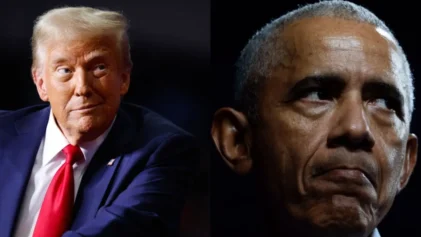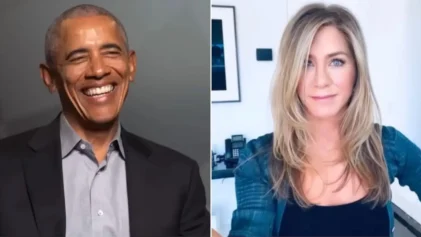Former U.S. Secretary of State Condoleezza Rice, who a decade ago helped lead the nation into the Iraq War under dubious circumstances, said last night that the U.S. had no choice but to intervene in the Syrian civil war against President Bashar al-Assad.
Rice, who is now a paid contributor for CBS News, told CBS Evening News anchor Scott Pelley that the country has no option to “sit on the sidelines.”
Rice was echoing comments made by Sen. John McCain (R-AZ), who recently returned from a secret trip to the region. She said a military no-fly zone would be a viable option to challenge Assad‘s regime.
“There’s no doubt it’s time for the United States to make clear that it is going to engage in this effort to stop the difficult situation in Syria and to prevent its further spread,” she stated. “It’s already spreading across the region. So the United States doesn’t have an option of no action.”
Since Iran, Hezbollah, Lebanon and Israel are all involved in different ways, Rice said the conflict was a “very serious situation” in which “the United States really doesn’t have an option to sit on the sidelines.”
“The United States of America has got to be present in this,” she said. “No other country has the potential even to change the dynamics on the ground and to take the initiative in the region.”
As national security adviser in President George W. Bush‘s first term, Rice had a key role in pushing for the invasion of Iraq based on the possibility that leader Saddam Hussein had weapons of mass destruction.
In one of her most famous quotes, she told CNN’s Wolf Blitzer in September 2002, “We don’t want the smoking gun to be a mushroom cloud.”
There have been reports that the Obama White House is considering providing weapons to Syrian rebels, though the president is still showing reluctance to get involved.
The tentative confirmation by U.S. intelligence that Assad has used chemical weapons against his citizens is forcing the Obama’s hand, pushing him to move closer to a commitment of U.S. resources in the troubled region.
The president said last month that investigators first had to determine if Syrian government forces intentionally used the gas, if it was accidentally released or if insurgents or other groups fired the weapons. He said such conclusive proof was necessary to win international support for action.
“If we end up rushing to judgment without hard, effective evidence, then we may find ourselves in the position where we can’t mobilize the international community to support what we do,” he said. “There may be objections, even among some people in the region who are sympathetic with the opposition, if we take action.”
If he did get the hard evidence showing Syrian forces used poison gas, he said he “would rethink a range” of retaliatory options that may not include military action. He said he would need international collaboration for any military operation since the burden of a response is not America’s alone.
“What’s happening in Syria is a blemish on the international community generally,” he said. Confirmed use of poison gas by Syrian forces would be “a game-changer not simply for the United States, but for the international community.”
Asked directly if that meant the administration would take military action, he said, “By ‘game changer,’ I mean that we would have to rethink the range of options that are available to us.” If the White House obtains conclusive proof of poison gas use, “that means that there’s some options that we might not otherwise exercise that we would … strongly consider.”
The president is walking a fine line between backing up threats against Assad and building up pressure against Syria’s Russian and Iranian allies, even as he seeks to avoid becoming drawn into another war in the Muslim world.
Officials said the administration is considering supplying nonlethal military equipment such as armor, communications gear, night-vision goggles and vehicles to Syrian insurgent groups, officials said.


